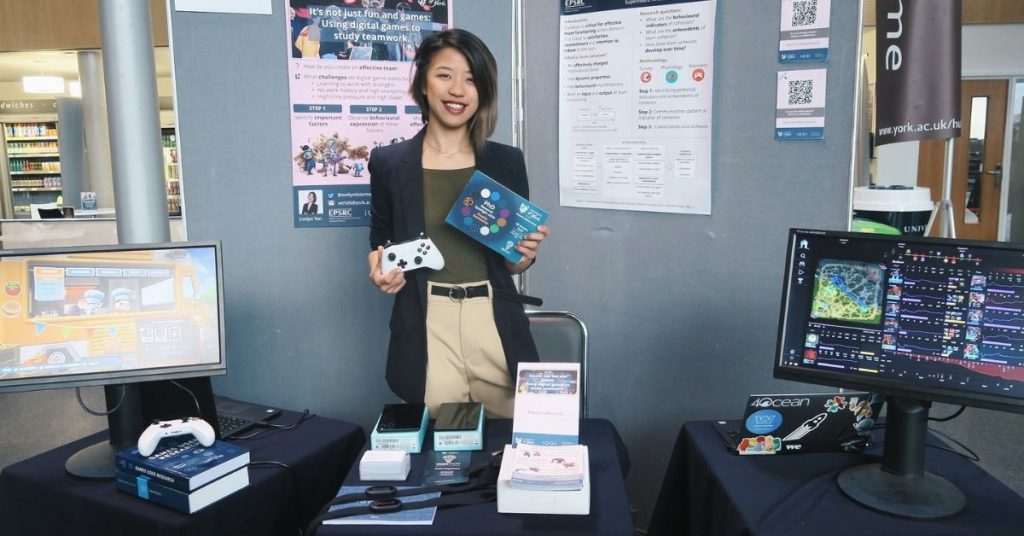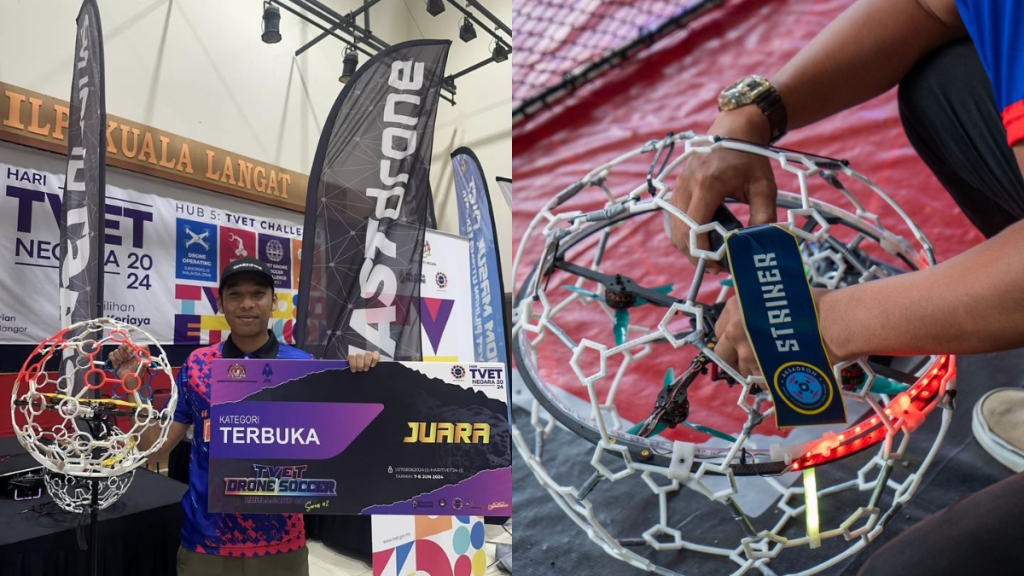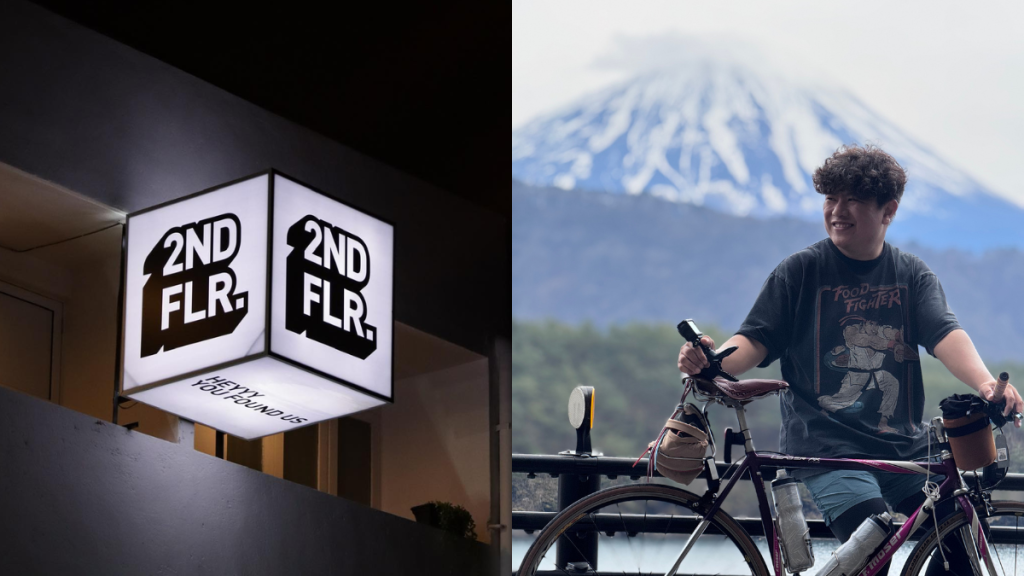Imagine a critical patient who has just entered the A&E, where frontliners have 10 minutes to save their life.
The medical team is formed based on whoever’s available on shift with no time for icebreakers before working together on the task.
How do such teams collaborate in this complex, yet coordinated environment?
That’s something Evelyn Tan is trying to understand in her PhD, by studying a similar type of setting that happens every day in many of our homes.
Competitive team-based games.
While digital games do not share such severe consequences for poor teamwork, the team demands are very similar, especially in competitive team-based games like Dota 2, League of Legends, Overwatch.”
Evelyn Tan, PhD Student at the Centre for Doctoral Training in Intelligent Games and Game Intelligence (IGGI)
From Strangers To Teammates
It’s common to game with strangers that you’ll probably never encounter again.
In these games, everyone has a role to play.
For 15 to 45 minutes, the team needs to communicate effectively, coordinate their actions, and make quick decisions to come together and win.
Many of these games however, have a reputation for their toxic communities, which Evelyn found very strange.
This is because it would be more efficient if people worked together when trying to progress in the game.
“It’s so counterproductive. I mean, in which universe did being aggressive and unkind to your teammates ever motivate them to cooperate even more?” she said.
So, her study focuses on 2 things:
- Understanding how to improve teamwork between strangers in new teams,
- Reducing toxic behaviour in competitive team-based digital games.
She’s studying commercial video games like League of Legends, Dota 2, Portal, and Overwatch.
Some of these games have publicly available game data, making it a good platform to understand how the team dynamics influences team outcomes.
Riot Games, the developers of League of Legends, for example, has publicly accessible data via their application programming interface (API).
These data provide players with in-depth analytics on their progress, either through the game clients or third-party sites like stratz.com or op.gg.
Evelyn can analyse behaviours like the number of objectives a team achieved and which team members participated in these objectives.
“On the other hand, if there is no public API or if the API does not provide metrics that are relevant for my research question, then I would manually collect these behaviours,” she explained.
This kind of study would typically be lab-based, either online or in-person.
For example, in a study she did on team communication in Portal 2 (co-op mode), she collected communication data by recording the keyboard activity of players in the lab.

She then wrote a script with the help of her project teammate to transform these raw keyboard inputs into full, time-stamped sentences.
So far, her research has led her to some interesting highlights:
- When it comes to team performance, it’s the quality and efficiency of communication rather than quantity that matters.
- Lots of positive reinforcement and encouragement can develop a positive climate in a team, even if there is a leader-subordinate dynamic going on.
“One of the most interesting things that I’ve observed so far is that, even in a short 45-minute, fully virtual, text-based interaction, strangers can bond to the point that they decide to go for lunch after my experiment,” she shared.
She’s An Avid Gamer Herself
Evelyn too, grew up playing video games.
Dota—while it was still known as Defense of the Ancients before it became Dota 2—was a childhood favourite.
“I started playing League of Legends when I got to uni and other games like Splatoon,” she said.
Though she doesn’t play them anymore, she also used to dabble with first-person shooter games (FPS) like Counter Strike and Overwatch, and real-time strategy (RTS) games like Starcraft.

During her undergraduate degree, she became intrigued at the idea of game research in a statistics lecture.
During the class, her professor presented analyses on League of Legends data.
“I approached him after the lecture to ask if I could work with him for my final year undergraduate project because a project on video games seemed like good fun,” she said.
Her whole study career amplified her captivation in the psychology of teams and video games.
She even pursued a study on whether video games were more effective than a typical icebreaker in developing trust in newly formed virtual teams for her Master’s thesis.
With FOMO and encouragement from her professor, she applied to the Intelligent Games and Game Intelligence (IGGI) PhD programme.
She now works full time on her PhD under the Centre for Doctoral Training in IGGI.

Her tuition fee and living cost is also fully funded by the Engineering and Physical Science Research Council (EPSRC).
“I should note that this PhD program only sponsors up to 1 international student per cohort,” she explained.
“I am incredibly blessed to have the opportunity that I have.”
On what keeps her so motivated to pursue these studies?
“I enjoy applied research, and would ideally like to continue doing that in some respect after the PhD,” she shared.
Though she doesn’t have any concrete plans right now, she’s keeping an open mind, being adaptable, and having a can-do attitude.
These are traits that have also helped her along the way.
I think I’ve already ‘made it’ because I am doing something that is meaningful to me, that allows me to grow as a person, and that can impact others in a positive way.
Evelyn Tan, PhD Student at the Centre for Doctoral Training in Intelligent Games and Game Intelligence (IGGI)
- You can learn more about the IGGI’s Centre for Doctoral Training here.
- You can read about other Malaysian startups here.
Featured Image Credit: Evelyn Tan, PhD Student in Computer Science, Centre for Doctoral Training














